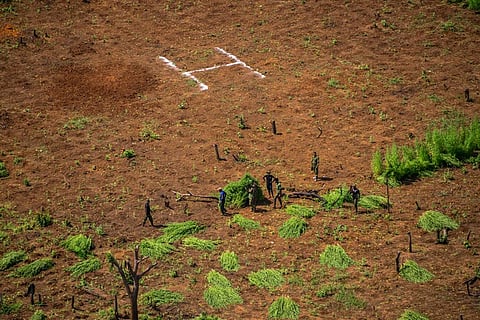Sri Lanka’s woes with cannabis legalisation
As Sri Lanka struggles with its worst economic crisis since its Independence, policymakers are increasingly focusing on diversifying the country's export industries to bring in much-needed foreign exchange, to purchase essentials such as fuel and medicines. Within this context, presenting the budget for the year 2023, President Ranil Wickremesinghe announced the appointment of an expert committee to examine the possibilities of producing cannabis – locally referred to as kansa or ganja – for export purposes.
This echoes Sri Lanka's state minister of tourism, Diana Gamage, who remains a strong advocate for legalisation and claims it will help the economy. She has earlier promised to bring in investments worth USD 2 billion for the cannabis plantation sector.

